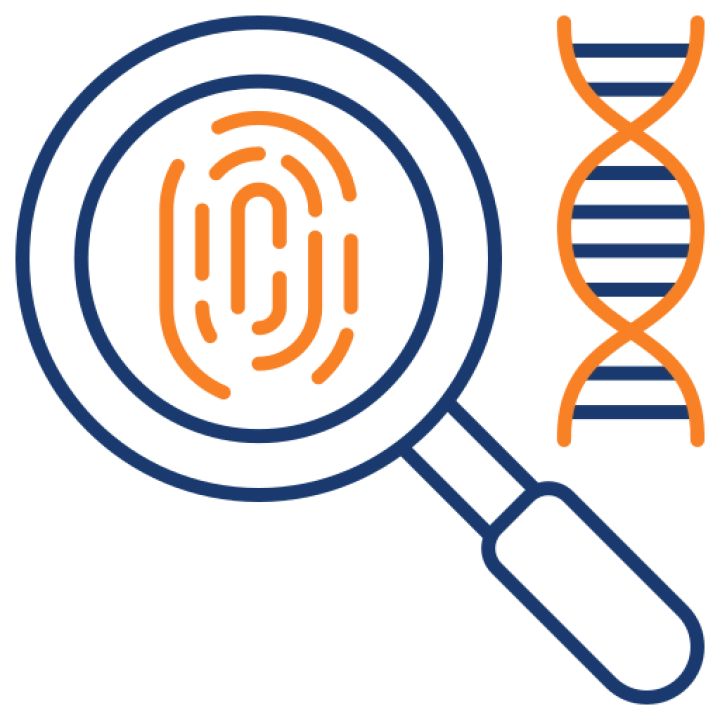College: Institute of Addiction and Forensic Sciences
This major prepares students to work in the field of forensic science, focusing on the application of scientific principles and techniques to legal and criminal investigations. Students develop laboratory skills, theoretical knowledge, and analytical abilities to collect, preserve, and analyze evidence. Graduates are prepared for roles in crime labs, law enforcement agencies, government institutions, and private forensic consulting firms.
Learning Objectives:
- Understand the fundamentals of forensic science, criminology, and legal procedures.
- Develop skills in evidence collection, preservation, and analysis.
- Learn techniques in crime scene investigation, forensic chemistry, biology, and toxicology.
- Explore the principles of forensic anthropology, odontology, and digital forensics.
- Analyze the challenges and opportunities in criminal investigations and legal procedures.
- Develop critical thinking, problem-solving, and ethical skills for practicing forensic science.
Core Curriculum:
- Introduction to Forensic Science
- An overview of the basic concepts and industry trends in forensic science.
- Fundamentals of forensic science, criminology, and legal procedures.
- Crime Scene Investigation
- Principles of crime scene investigation including evidence identification, documentation, and collection.
- Techniques for securing and processing the crime scene.
- Forensic Chemistry
- Basics of forensic chemistry including drug, toxin, and trace evidence analysis.
- Chemical analysis techniques and instrumental methods in forensic chemistry.
- Forensic Biology
- Principles of forensic biology including DNA analysis, serology, and bloodstain pattern analysis.
- Techniques for examining and interpreting biological evidence.
- Forensic Toxicology
- Foundations of forensic toxicology including the analysis of drugs, alcohol, and toxins in biological samples.
- Toxicological analysis and interpretation techniques.
- Forensic Anthropology and Odontology
- Principles of forensic anthropology and odontology, including human remains identification and dental evidence analysis.
- Techniques for anthropological and odontology examinations.
- Digital Forensics
- Understanding and applying digital forensic tools for data recovery, analysis, and cybercrime investigations.
- Techniques for examining digital evidence and computer forensics.
- Forensic Law and Ethics
- Principles of forensic law including evidence admissibility, chain of custody, and expert testimony.
- Ethical considerations and professional standards in forensic practice.
- Practical Training in Forensic Science
- Real-world experiences in forensic science including observations, internships, and practical projects in crime labs or law enforcement settings.
- Application of skills acquired in practical criminal investigations.
- Capstone Project in Forensic Science
- A comprehensive project applying skills in crime scene investigation, forensic chemistry, or digital forensics.
- Presentation of a polished forensic science project or case study.
Assessment Methods:
- Crime scene reports, forensic chemistry analyses, forensic biology projects, toxicology reports, anthropology and odontology studies, digital forensic presentations, internship reports, capstone projects, group projects, and internship evaluations.
Recommended Textbooks:
- "Forensic Science: An Introduction to Scientific and Investigative Techniques" by Stuart H. James and Jon J. Nordby.
- "Criminalistics: An Introduction to Forensic Science" by Richard Saferstein.
- "Forensic Chemistry" by Suzanne Bell.
- "Fundamentals of Forensic DNA Typing: Biological and Technological Principles" by John M. Butler.
- "Clarke's Analysis of Drugs and Poisons" by A. C. Moffat et al.
- "Forensic Anthropology: Current Methods and Practice" by Steven A. Symes et al.
- "Digital Forensics for Incident Response" by Gerard Johansen.
Prerequisites:
Basic knowledge of chemistry, biology, and criminal justice. Suitable for students interested in forensic science, criminology, and related fields.
Duration of the Major:
Typically 4 years to earn a bachelor's degree, including coursework, projects, practical training, and internships.
Certification:
Graduates may earn a degree in forensic science and pursue professional certifications such as those offered by the American Board of Criminalistics (ABC) or related fields.
Target Audience:
Aspiring forensic scientists, criminal investigators, law enforcement professionals, and individuals seeking careers in forensic science, criminal investigation, and related fields. This major equips students with the practical, theoretical, and analytical skills needed to excel in forensic science, supporting careers in crime labs, law enforcement, and related fields.

